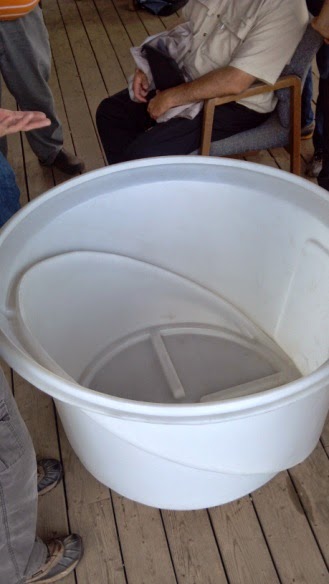Alternative Chicken Feed Systems in Haiti
 |
| Worm box used to raise black soldier fly larva and worms |
Let’s say you wanted to
help rural farmers improve their food security by raising chickens and
producing eggs, but the high cost of chicken feed would create dependency on
outside vendors and limits profits. What if you could reduce feed cost, improve
the chickens’ diet, and support locally sustainable systems? Partners' Farmer-to-Farmer volunteer, Patryk Battle, spent two weeks in
Haiti in September to demonstrate how plant waste, grazing, raising black
soldier fly larva, and vermiculture could do just this.
Patryk worked with Royal Palm, a local organization that has a pilot demonstration plot and egg production site in Haiti. Due to the high cost of chicken feed,
Royal Palm has sought technical assistance in identifying alternative chicken
feed systems. These alternative chicken feed systems could not only enable farmers to generate more income, but also provide an environmentally
sustainable solution to reduce costs. In Haiti, some
available sources of alternative chicken feed include the black soldier fly and vermiculture, as
well as vegetative crop waste.
During his assignment,
Patryk evaluated these local resources and trained over 100 individuals through
hands-on demonstrations on the production of soldier
fly larva, worm composting, and compost tea. These methods have been incorporated into Royal Palm's demonstration farm and serve as a model system that uses local materials to produce alternative chicken feed while also increasing soil fertility, reducing feeding costs, and improving bird health
and egg quality. On this system, Patryk states, "The chicken feed, instead of being an end in itself, can form part
of what will become a dynamic and productive farming system. . . This is the only real solution to sustainably producing chicken feed in Haiti."

.png)

Comments
Post a Comment